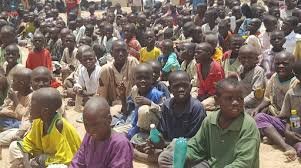Save the Children’s International recent analysis has indicated that approximately 15.6 million children in Nigeria, which is one out of every six children, will face hunger as the lean season approaches.
This figure represents a 25% increase from the same period in 2023, driven by escalating insecurity, ongoing conflict, banditry, and rising food prices in the country.
Save the Children’s analysis, based on figures from the Cadre Harmonisé—a regional framework for identifying food and nutrition insecurity in the Sahel and West Africa—predicts that nearly 32 million people in Nigeria, including 15.6 million children, will face crisis levels of hunger between June and August unless significant food and cash assistance is provided.
Violent attacks, kidnappings, and killings by non-state armed groups and bandits, particularly in the north, have severely disrupted food production and local markets.
The Association of Nigerian Farmers reports that at least 165 farmers have been killed this year, primarily in Benue, an emerging hotspot for farmer and herder conflict according to the UN.
“An already dire hunger situation in the country is gradually going from bad to worse as violence, insecurity and rising prices combine to leave over 15 million children hungry in Nigeria,” said Duncan Harvey, Save the Children’s Country Director for Nigeria. “Hunger exists nationwide, but the situation in the north where violence is rife is particularly dire. In Borno, Yobe, Katsina, and Zamfara, one in three children do not know where their next meal will come from.”
The situation is classified under the IPC scale, with Phase 3 indicating a crisis, Phase 4 an emergency, and Phase 5 approaching famine-like conditions. At least 490,000 children, mainly in Borno and Katsina, are expected to face catastrophic levels of hunger (IPC4). The percentage of the population facing hunger has doubled from 7% in 2020 to 15% today.
Save the Children is urging Nigerian governments at all levels to transform food production and distribution and incentivize climate-resilient crop farming. Globally, it calls on world leaders to tackle the root causes of acute food and nutrition insecurity, such as conflict, the climate crisis, and global inequality.
The organization emphasizes the need for collaboration between governments, humanitarian and development organizations, climate groups, and the private sector. Save the Children has been active in Nigeria since 2001, providing essential services and technical support to the government.



